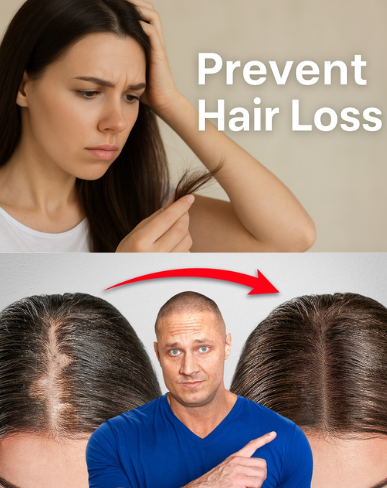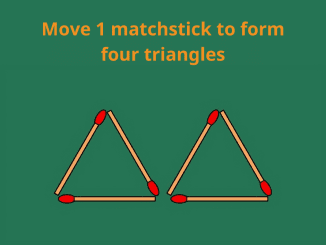
Hair is more than just a style statement—it’s tied to confidence, identity, and personality. That’s why hair loss, also known as alopecia, feels so personal and sometimes overwhelming. The truth is, hair loss can stem from multiple causes, ranging from genetics and hormonal changes to stress, illness, or poor lifestyle choices. Men often notice thinning at the crown or receding temples, while women may see hair loss along the parting or across the scalp. But here’s the good news: while some types of hair loss are unavoidable, there are many ways to slow it down, prevent it from worsening, and even encourage regrowth.
Understanding the Root Causes of Hair Loss
Before jumping into prevention, it helps to understand what’s happening beneath the surface. Hair grows in cycles—growth (anagen), rest (telogen), and shedding (catagen). Disruptions in these cycles, whether from genetics or external triggers, can cause more strands to fall out than grow back. Environmental pollutants, medications, infections, and nutrient deficiencies all contribute to weakened hair follicles. Identifying the underlying cause is the first step toward effective treatment.
Nourish From Within: The Role of Diet
You’ve probably heard the saying, “You are what you eat.” Well, your hair definitely reflects your nutrition. A lack of protein and vitamin B complex is strongly linked to excessive shedding. On the flip side, too much vitamin A can actually trigger hair loss. To prevent deficiencies, build your plate with protein-rich foods like eggs, lean meats, fish, legumes, and nuts. Pair them with leafy greens, whole grains, and fruits to cover your vitamin needs. Hydration also matters—water helps flush toxins and supports healthy cell function, including those responsible for hair growth.
Harnessing Natural Treatments
Mother Nature has always provided simple yet powerful remedies for stronger hair. Natural oils such as coconut, olive, or argan oil deeply nourish the scalp, improve blood circulation, and strengthen roots. Hot oil massages are especially effective because they relax the scalp and open pores. DIY masks made from eggs, curd, or lemon are also popular because they’re nutrient-dense and free from harsh chemicals. While these won’t transform your hair overnight, consistent use often leads to thicker strands and a healthier scalp.
Video : 9 Easy Tips on How to Stop Hair Loss and Regrow Hair Naturally
Style Smartly: Less Stress on Your Hair
Your styling habits could be making things worse. Tight ponytails, braids, or buns pull on the hair shaft, leading to traction alopecia—a type of hair loss caused by repeated stress. Using flat irons, curling wands, or harsh chemical treatments weakens the cuticle and makes hair prone to breakage. Instead, embrace looser hairstyles and let your hair rest. Choose shampoos and conditioners designed for thinning hair, and avoid products with heavy silicones that can clog pores. Gentle styling keeps your strands safe while still looking polished.
Switch to Wooden Combs
This may sound small, but your choice of comb makes a big difference. Plastic combs often generate static and cause breakage, while wooden combs are gentler and help distribute natural oils from scalp to tips. That means more even nourishment and less greasy buildup at the roots. And one golden rule—never comb wet hair. Wet strands are at their weakest and most likely to snap. Instead, gently detangle with your fingers and let your hair partially air-dry before combing.
Drying Techniques Matter
The way you handle your towel after a shower can make or break your hair health. Vigorous rubbing tangles strands and leads to breakage. Instead, gently blot or pat your hair and let it dry naturally. If you must use a blow dryer, stick to a cool or medium setting. The less heat your hair is exposed to, the stronger and shinier it will stay.
Keep Your Scalp Clean and Fresh
A clean scalp equals healthy hair growth. Wash your hair at least twice a week with a mild, sulphate-free shampoo. This clears away dirt, dust, and excess oils without stripping your natural moisture barrier. Overwashing, however, does the opposite—it dehydrates the scalp, leading to more oil production and eventually, weakened follicles. Pairing shampoo with a gentle conditioner keeps strands smooth, manageable, and less prone to tangling.
Recommended Products for Hair Loss Prevention
While lifestyle changes and natural remedies go a long way, sometimes the right products give you that extra edge. Dermatologically tested, silicone-free, and sulphate-free shampoos and conditioners are best for those dealing with hair loss. Re’equil, for example, offers a Hair Fall Control Shampoo and Serum designed specifically to combat shedding while promoting stronger, shinier hair. Its lightweight formula allows pores to breathe and encourages faster, healthier regrowth. Always choose products that are transparent about ingredients and safe for all hair types.
Video : Dermatologist shares tips to help women combat hair loss
Conclusion: Protect Your Hair, Protect Your Confidence
Hair loss may feel like an uphill battle, but it’s not a fight you’re destined to lose. With the right diet, natural treatments, smarter styling choices, and proper hair care routines, you can slow down shedding and restore your confidence. Remember, consistency is the secret weapon—healthy habits practiced daily will keep your scalp nourished and your strands strong. By combining prevention with gentle care, you’re not just saving your hair—you’re investing in your long-term confidence and well-being.


